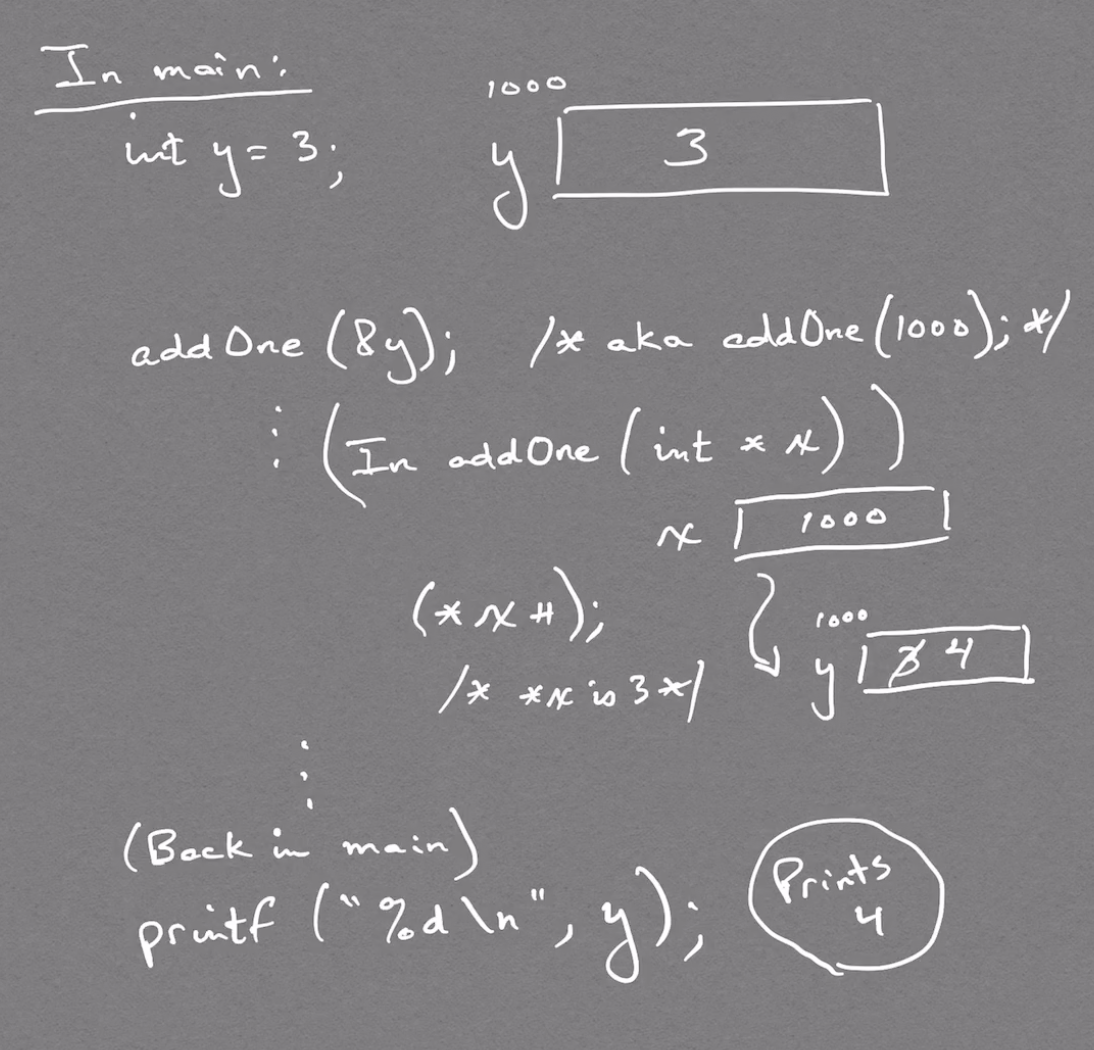C Pass-By-Reference
All Parameter Passing in C is Pass-by-Value
Pass-by-value means a copy of the value
is made and passed to the function
#include <stdio.h>
void addOne(int x);
void main()
{
int y = 3;
addOne(y);
printf ("%d\n", y);
}
void addOne(int x)
{
x++;
}
Using Pointers to Achieve the Effect of Pass-by-Reference
Pass-by-reference means a reference
to the value is passed to the function
#include <stdio.h>
void addOne(int * x);
void main()
{
int y = 3;
addOne(&y);
printf ("%d\n", y);
}
void addOne(int * x)
{
(*x)++;
}
|

|
Alyce Brady, Kalamazoo College
